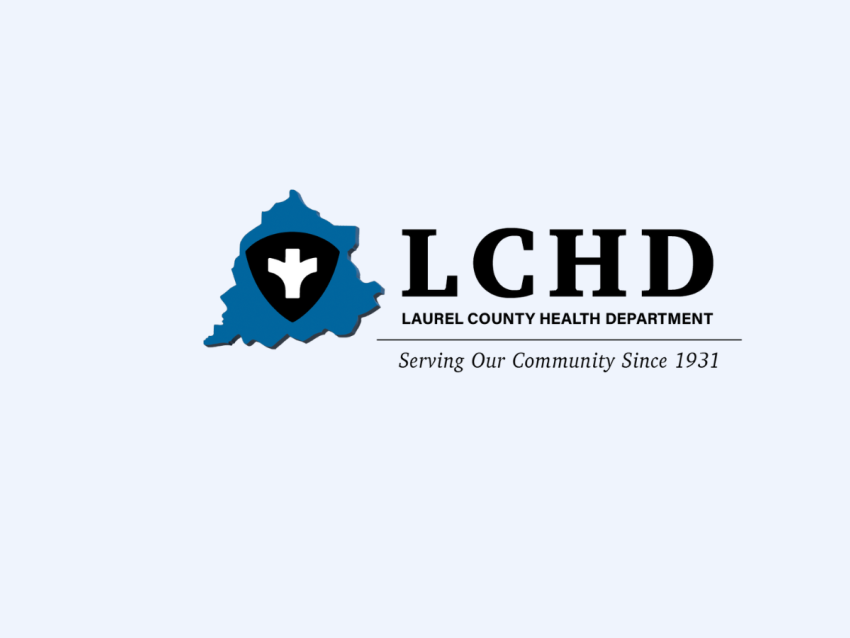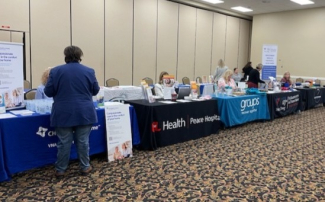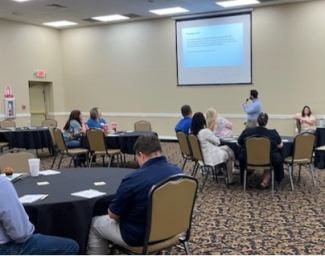
Spotlight on Laurel County Health Department: Advancing Tobacco Treatment and Community Collaboration
In spring 2025, the Laurel County Health Department led a three-part professional development series, Strategies in SUD Treatment and Behavioral Health, to promote connection, education, and collaboration among community partners. The series brought together health professionals, service providers, and community members to strengthen efforts in behavioral health and substance use disorder (SUD) treatment and prevention.
The series began with two virtual sessions in April. The first session, held on April 17th, featured a training from PAVe (Parents Against Vaping), offering practical strategies to address youth vaping and support prevention efforts. The second session, Combating Stigma in Behavioral Health, took place on April 24th and focused on reducing stigma as a barrier to care and recovery. Both sessions laid a strong foundation for the in-person mini-conference that followed in May.
On May 9, 2025, the health department hosted the culminating event of the series—an in-person mini-conference titled Strategies in SUD Treatment and Behavioral Health. Held from 8:00 a.m. to 1:30 p.m. at the London Community Center in London, Kentucky, the conference gathered representatives from numerous organizations across the community. An exhibit hall featuring over 20 organizations providing behavioral health services was open throughout the day, offering attendees the opportunity to connect, share resources, and build partnerships. The conference highlighted the department’s commitment to prioritizing substance use disorder treatment and prevention and creating a healthier, more connected community.
BH WELL participated in the event by hosting a table in the exhibit hall and sharing evidence-based tools for tobacco treatment among individuals living with mental and behavioral health challenges. BH WELL also provides ongoing technical assistance to the Laurel County Health Department as they engage behavioral health organizations in promoting tobacco-free environments and expanding access to treatment.
A highlight of the conference was an engaging session led by the health department, during which participants conducted a SWOT analysis to assess the community’s strengths, weaknesses, opportunities, and threats. The session sparked rich discussion, drew meaningful insights from attendees, and underscored the department’s commitment to strategic, collaborative planning grounded in the voices of the community.
In addition to networking and knowledge-sharing, the health department used the conference as an opportunity to strengthen long-term collaboration. Attendees were invited to contribute to a comprehensive electronic community resource guide designed to support individuals seeking services. By scanning a QR code at the event, participants could easily enter their organization’s information to be included in this valuable community asset.
The professional development series emphasized tobacco treatment as a critical component of recovery and reinforced the importance of integrating tobacco treatment into behavioral health services, particularly for those disproportionately affected by substance use disorder.
Just one week after the mini-conference, Laurel County faced unimaginable loss and devastation when an EF4 tornado struck on May 16, 2025. The storm killed 19 people, injured 108 others, and damaged or destroyed 1,500 homes—causing an estimated $350 million in damage. In the aftermath, the Laurel County Health Department quickly stepped into action, providing essential services to help the community recover. They developed a Tornado Resource Listing, administered tetanus vaccines to first responders and volunteers, and hosted community clinics offering critical services—including mental health support—to those affected. Their steadfast leadership in the wake of tragedy reflects the department’s deep commitment to the well-being of every person in their community.
BH WELL stands in strong support of the Laurel County Health Department as they continue to lead with compassion, collaboration, and resilience—especially in their efforts to reduce tobacco use and promote healthier, tobacco-free communities.

